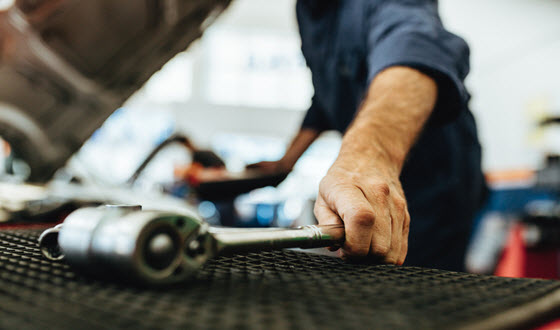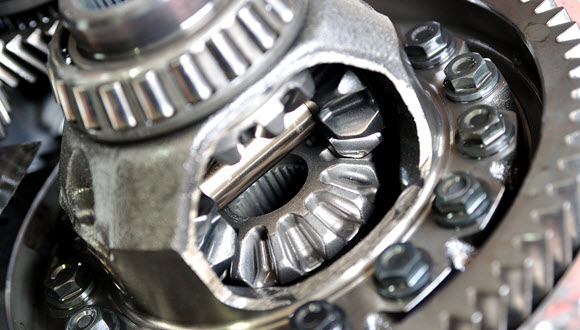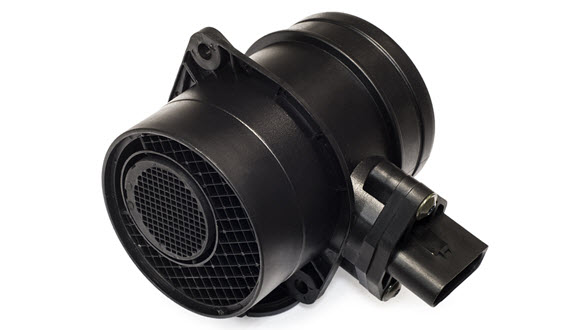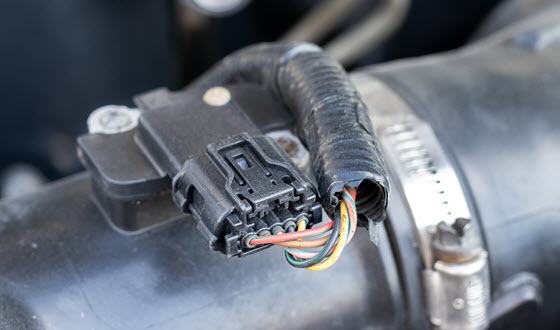Tips to Diagnose Differential Failure in a Mercedes
Posted on | 25 Jul 2020 By Anita Gaal
The differential of your Mercedes is an important component of your vehicle that few drivers talk about. It is part of what gives Mercedes the amazing drivability of their design. The role of the differential is to transfer the power created by the engine to the wheels. It can alter the amount and speed of wheel spin your vehicle experiences to help you to take corners much more smoothly.
The differential is constantly working as you drive. Because of its constant use, it can become worn out and begin to fail due to natural wear and tear. Once this happens, replacement can be expensive but will need to be done if you want to retain your model’s performance and smooth handling.
Ideally, you want to try to preemptively diagnose differential failure and catch the problem while it’s still able to be repaired. This will save you time and money in the long run. Let’s take a look at how you can deal with differential failure, from diagnosis to preventative measures.
Common Signs of Differential Failure
Before we get into the details of how to spot and diagnose the differential failure, let’s first take a look at some of the overarching symptoms of differential trouble:
- transmission or differential whines or makes grinding noises
- gears haven’t been serviced for some time
- transmission fluid/gear oil has become dirty or contaminated
- uneven tire wear
- vehicle corners roughly
- vehicle vibrates when accelerating
- leaking differential fluid
- gears grind or make humming noises
How you can Deal with Differential Failure
There are some key steps you can take to help reduce the risk of differential failure or catch the problem early. Let’s explore these further.
Lifetime Fluid
Mercedes describes the fluid used in their differentials as being “lifetime fluid,” meaning that it won’t need to be changed during your ownership of the vehicle. However, this isn’t true.
Shifting gears can cause grinding, which results in minute metal shavings that flow through the differential fluid. Over time these can build up, and what is worst is your differential has no filter to catch them. When this happens, the fluid needs to be changed to prevent internal damage.
The misleading nature of the term, lifetime fluid, can leave drivers putting off getting it changed. Ideally, you should look to have this fluid changed out at 30,000-mile intervals, as this will help retain your Mercedes’ performance.
Strange Noises
Unexplained noises when driving your car always indicate a problem that needs to be addressed. When the differential is failing, you’ll hear loud noises when you are cornering. If this issue gets ignored for long enough, the gears will break down. Fixing gears is very expensive and may leave your car a write-off.
Differential Oil Leaks
Leaks of any kind should be fixed as soon as possible. In the case of leaking differential fluid, you’ll notice that the source of leak emanates from one of the axles. In order to prevent yourself from having to shell out for differential or transmission repair, make sure you have the leak repaired and the fluid refilled as soon as possible.
Weird Smells
A burning smell from your car is never a good sign. The scent of burned oil can be caused by overheating any of the oil-reliant systems of your car, including the differential. When the differential oil becomes old, it becomes thick and will inhibit the gears and other moving components instead of lubricating them, as designed. If you’ve had your oil changed recently and notice the smell of burning oil, then make sure you give your differential the once over to check for problems.
Prevention
The best thing you can do with any part-failure is to prevent it from happening in the first place. There are specific steps you can do to increase the lifespan of your differential:
- use top-quality gear oil
- routinely change your gear oil at 30,000-mile intervals
- limit wheelspin or wheelslip
- inspect the differential system frequently to keep an eye out for leaks

Euro Automotive
Don’t get in a bind with differential failure. Deal with the problem swiftly by visiting our team at Euro Automotive of Dallas, Garland, Arlington, and Fort Worth, TX. We can change out your gear oil and advise you on the best maintenance practices to help keep your Mercedes’ systems running at peak performance. Call us today to schedule an appointment.















